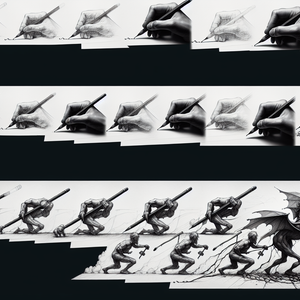The Evolution of the Washington Commanders: A Franchise Reborn

The Washington Commanders, initially founded as the Boston Braves in 1932 by George Preston Marshall, quickly became the Boston Redskins and moved to Washington, D.C., in 1937. The team established itself as a formidable force in the NFL, winning three Super Bowl titles in 1983, 1988, and 1992. In this period, the franchise garnered a passionate fan base, establishing itself as an iconic entity in American football. However, this success came amidst challenges, including racial tensions surrounding the team's name and its implications. The name "Redskins" became increasingly controversial as societal attitudes toward race and representation evolved.
The Name Change Controversy
For decades, the name "Redskins" was a point of pride for many fans, symbolizing strength and resilience. However, as the national conversation around race and cultural sensitivity intensified, the name came under scrutiny. Activists, fans, and sponsors criticized the name, arguing that it perpetuated harmful stereotypes about Native Americans. In July 2020, amidst a broader national reckoning regarding racism and social justice, the team officially announced the retirement of the name "Redskins." This pivotal moment marked a critical juncture for the franchise, igniting discussions about identity and representation in sports.
Rebranding as the Commanders
Following the name change, the franchise engaged in an extensive consultation process with fans, community leaders, and stakeholders to determine its new identity. In February 2022, the team unveiled its new name, the Washington Commanders. The rebranding was not merely a cosmetic change; it signified a commitment to inclusivity and a desire to honor the military heritage of the D.C. area. The name "Commanders" was selected to reflect leadership, resilience, and the spirit of community, aiming to unite fans under a new banner. While reactions were mixed, the rebranding was a fresh start, allowing the franchise to move forward while acknowledging its complicated past.
Cultural Impact and Community Engagement
The rebranding also provided an opportunity for the Commanders to enhance their community engagement efforts. The franchise has since focused on fostering connections with local residents, emphasizing inclusivity and support for marginalized communities. Initiatives such as youth programs, charitable contributions, and partnerships with local organizations have become central to the Commanders’ mission. For example, the team launched initiatives targeting youth sports development, aiming to empower the next generation of athletes. By positioning themselves as a positive force in the community, the Commanders are redefining their role in the region beyond just football.
Challenges and Opportunities Ahead
Despite these positive strides, the Washington Commanders face ongoing challenges and opportunities in their journey. As the NFL evolves, there is an increasing expectation for teams to be socially responsible and to prioritize community relations. The Commanders must ensure that their actions align with their new identity and foster a strong relationship with a diverse fan base. This involves ongoing dialogue and engagement, ensuring that all voices, particularly those from historically marginalized communities, are heard and valued. As the franchise navigates these complexities, it has the opportunity to set a precedent for how professional sports teams can engage with their communities meaningfully.
The evolution of the Washington Commanders from the Redskins to their current identity as the Commanders represents a significant chapter in the franchise's storied history. This transformation is emblematic of the broader cultural shifts within American society and the changing dynamics of the NFL. By embracing a new name and committing to community engagement and inclusivity, the Commanders have the opportunity to redefine what it means to be a successful sports franchise. The legacy of the Commanders is still being written, and their journey serves as a powerful reminder of the importance of identity, representation, and the potential of sports to drive positive change in society.
Sports Brand Manager
Professional sports teams (e.g., NFL, NBA), Sports marketing agencies
Core Responsibilities
Develop and implement brand strategies that align with the franchise's identity and community values.
Conduct market research to understand fan perceptions and inform branding decisions.
Collaborate with marketing and PR teams to create campaigns that resonate with diverse audiences.
Required Skills
Strong understanding of brand management principles and sports marketing.
Excellent communication and interpersonal skills to engage with community leaders and fans.
Experience in data analysis to assess brand performance and fan engagement.
Community Relations Coordinator
Sports franchises, Nonprofit organizations focused on community development
Core Responsibilities
Manage community outreach programs and initiatives that foster relationships with local organizations and residents.
Coordinate events that promote youth sports development and inclusivity within the community.
Act as a liaison between the franchise and community stakeholders, ensuring their voices are heard.
Required Skills
Strong organizational and project management skills.
Excellent public speaking and writing abilities for community engagement.
Background in social work, nonprofit management, or public relations.
Sports Marketing Analyst
Sports teams and leagues, Marketing and consulting firms specializing in sports
Core Responsibilities
Analyze market trends and fan behavior to guide marketing strategies for the team.
Evaluate the effectiveness of promotional campaigns and community initiatives.
Provide actionable insights through data visualization and reporting to support decision-making.
Required Skills
Proficiency in analytics tools and software (e.g., Excel, Tableau).
Strong quantitative skills and attention to detail.
Experience in sports marketing or business intelligence.
Event Operations Manager
Professional sports teams, Event management companies specializing in sports events
Core Responsibilities
Oversee the planning and execution of game-day operations and special events.
Coordinate logistics, including staffing, security, and vendor management for events.
Ensure compliance with safety regulations and provide a positive fan experience.
Required Skills
Strong leadership and team management skills.
Excellent problem-solving abilities and attention to detail.
Experience in event planning, particularly in a sports context.
Sports Social Media Strategist
Sports teams and leagues, Digital marketing agencies with a focus on sports
Core Responsibilities
Develop and implement a social media strategy to enhance fan engagement and brand visibility.
Create and curate content that reflects the franchise’s new identity and community initiatives.
Monitor social media metrics and trends to optimize content and engagement.
Required Skills
Proficiency in social media platforms and content management systems.
Strong writing and storytelling skills tailored for digital audiences.
Familiarity with social media analytics tools and trends in sports marketing.


